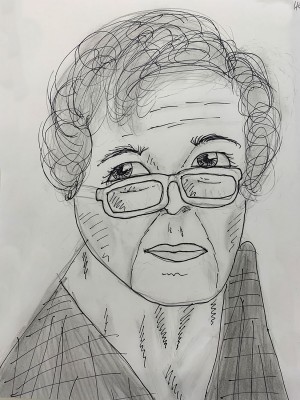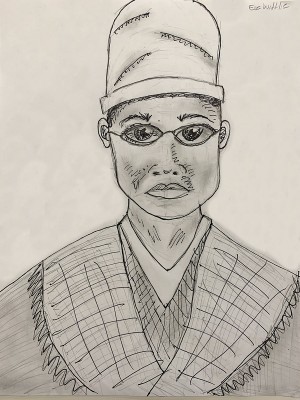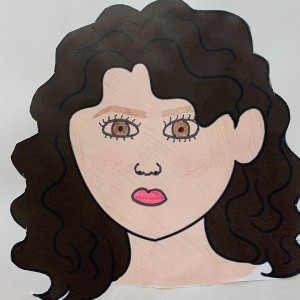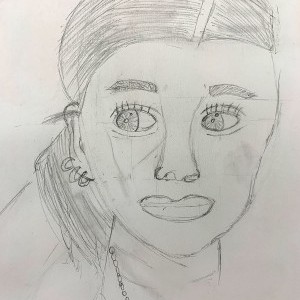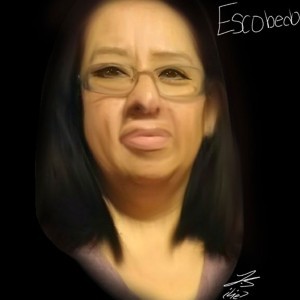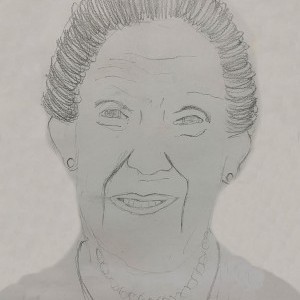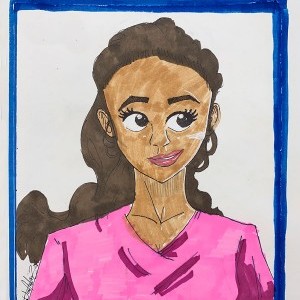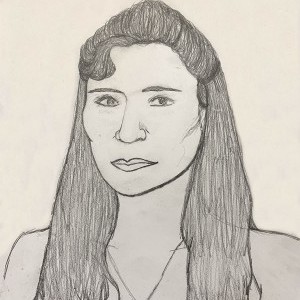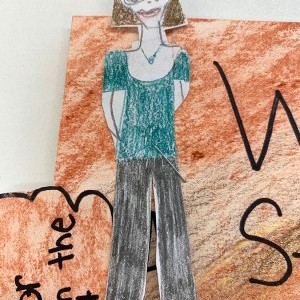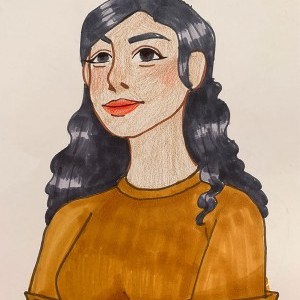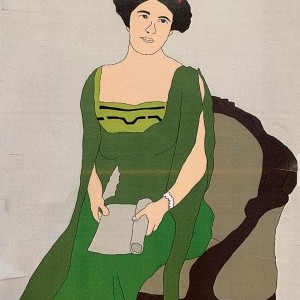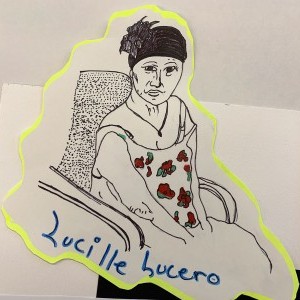Eva Wittlif
Kunsmiller Creative Arts Academy | Denver, CO | 11th Grade
Inspirational Family Member
In the Words of my Great-Grandmother
I feel that the suffragist movement was very important. If I was a suffragist in the 1910s I would be very vocal about women being able to vote. I would go out and protest for the right to vote because sex shouldn’t stop someone from getting his or her voice heard. We can’t stop injustices if we don’t have the power to vote or speak out about this injustice. I think it is important to vote. Voting was very hyped up in our family. Once you turned 18, it was not only expected but mandatory to vote in my family. My parents defiantly loved voting. We did what our parents said. I once voted Republican because I felt that was the best decision. If my dad found out he would probably turn in his grave. He and my mom both were strict Democrats. My parents went through the Great Depression and felt that it was very important to vote. They thought it was important to vote Democrat because it would stop another tragedy like the one that they lived through. My mother was the first woman to vote in my family. I always vote for things like presidents and new government laws. I don’t vote sometimes in a city election unless it’s important (something I care about). Voting is confusing. Some times yes means no; or, it’s not going to happen, and no means no I don’t want it to happen. I probably have voted yes when I meant no before.
I feel like In order for me to vote in my city, there would have to be more information readily available about the issues and the viewpoints on both sides. I just feel that voting should be more transparent so that it would make it easier and more accessible for people of old age and other disabilities to vote. I will always vote and encourage all people from every background to do the same.
Historical Figure I Admire
Sojourner Truth
"If the first woman God ever made was strong enough to turn the world upside down all alone, these women together ought to be able to turn it back, and get it right side up again! And now they are asking to do it, the men better let them." —Sojourner Truth.
Sojourner Truth was an African American woman who was not just a suffragist fighting for women’s rights, but also abolitionist fighting against slavery. She is best known for her speech during the suffragist movement, called “Ain’t I a Woman?” Truth lived from 1797 to 1883, and her first language was Dutch. The most important thing was that she was the first black woman to successfully challenge a white man in court. Truth spent her whole life trying to get freedom for herself and for others. This dedication deserves to be recognized through history as one of the greatest women and persons of all time.
Truth impacted society by speaking out, first about abolishing slavery; later speaking about women’s rights to vote, among many of the social justice deeds she accomplished. The fact that Truth was a former slave gave her a strong sense of fairness and justice, which drove her to make society better for others. Her children were being illegally sold and they were taken away and killed because they were black. Like Truth said in her speech, ”I have borne thirteen children and seen most all sold off to slavery, and when I cried out with my mother's grief, none but Jesus heard me! And ain't I a woman?” Once the Abolitionist movement was available all her hands were on deck to make the world safer for her children and others. Later on, she realized it was hard to get peace without a voice, so she dedicated her life to the suffragist movement.
Truth made a very popular speech during the suffragist movement called "Ain't I A Woman?" The beginning of this speech started with these very inspiring words, “That man over there says that women need to be helped into carriages and lifted over ditches, and to have the best place everywhere. Nobody ever helps me into carriages, or over mud-puddles, or gives me any best place! And ain't I a woman?” This showed that there was not just a racial divide, but a gendered one as well with women’s place at the bottom. Truth was bringing to light the inequality issue and putting many of her efforts into showing people that black women deserved to vote, but they also deserve to be treated like an equal. Truth’s motivation was not only to get women a voice. It went as far as just being treated like a human and to stop her children from being killed and not treated like animals. While most women in the movement were White, Truth and the few other black women showed the diversity of voices present. They taught many people that the color of their skin does not impact strength, passion, or power. All in all, Truth brought women of all colors closer together and helped bring more racial equality throughout the genders.
What the Project Means to Me
I learned the importance of voting in my family. I also learned about my family history including my great-great-grandparents going through the Great Depression. I feel for Sojourner Truth in the fact that there was a racial divide in the suffragist movement. There should be no division if they are working toward the same goal. It seems that even if we are here for the same purpose and fighting for the same thing there is still a racial divide everywhere we go. Through this movement, racism was weakened and voting became readily available to women. I still say that the most powerful part of Truth’s speech was “That man over there says that women need to be helped into carriages, and lifted over ditches, and to have the best place everywhere. Nobody ever helps me into carriages, or over mud-puddles, or gives me any best place! And ain't I a woman?”. I find Truth the most inspiring suffragist. Although my family was never denied the right to vote and my family is not black, I feel that we can all learn from Sojourner Truth and her passion to make this world better for others. My great-grandma said, “ There will be differences in families, based on politics and religion but I think staying together is the most important part.” I took away that we should stick with our family no matter what. If we can’t do that we should fight for their lives.
Explore the Archive
More From This Class
Click on the thumbnails below to view each student's work.Deadline Extended
There's still time to join Women Leading the Way.
Become a part of our storytelling archive. Enroll your class today.
Join the Project

